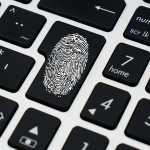Have you ever wondered what happens to all of your personal information and online accounts upon death? Do we allow the Executor/Administrator of the estate to gain access to this information? Until recently, the law has been a few steps behind modern day technology. With the new era of technology, laws are progressively changing to accommodate for technological advances such as online accounts.
The new debate has been over whether or not custodian holders should allow an estate administrator access to the deceased-user’s online assets. According to the recently enacted section of Article 13-A of the Estates, Powers and Trusts Law (EPTL), a custodian of an electronic record, such as Google or Hotmail, shall disclose to the person in charge of the decedent’s estate, or a fiduciary of an incapacitated person, an inventory of the electronic communications, both sent and received by the decedent user, upon a written request for disclosure together with a copy of the death certificate of the user as well as a certified copy of the letter of appointment or small-estate certificate.

According to the Stored Communications Act (18 USC §2701), an electronic communication is a transfer of data by specific electronic means. Under this Act, when there is not a transfer of information, between two users, when a calendar entry is made, the user’s calendar will not be considered “communication” and disclosure by the custodian will be prohibited.
On or about June 14, 2017, in the Matter of Serrano, the Surrogate’s Court of New York, New York County, decided a case involving a petitioner who filed an affidavit under the above Article in order to gain access to his deceased spouse’s Google account information, including the deceased calendar information. In Serrano, the Court held that electronic calendar’s are a digital asset, which does not include electronic content, and must be disclosed to an estate representative by the custodian pursuant to EPTL 13-A-3.2.
Now, after the custodian of the electronic assets grants you permission to the asset, you may then need assistance in collecting all of the data and making sure that you have obtained everything necessary to probate the estate, in a forensically defensible manner. The process of probating an estate can be a lengthy and stressful process. Going through every online account you have obtained access to, can be a very daunting task. Litigation will often arise when an estate is being probated. Due to litigation arising, it is important to make sure that after obtaining information from online accounts that you preserve everything you have retrieved. With the assistance of our services, LITeGATION provides data collection from servers, laptops, desktops, social media, and more. Upon retrieval of the data collected, LITeGATION then provides its client with secure production/storage in order to review and preserve your data.
For more information in-line with such forensic collection services, or to learn more about our other litigation support solutions, please visit us at litegation.com.








